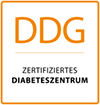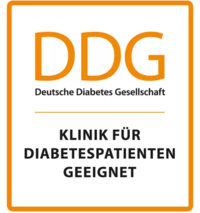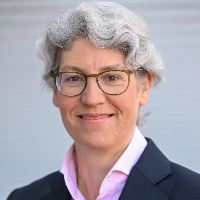Diagnostic of Stomach (gastric) Cancer
Treatment prices are regulated by national law of the corresponding countries, but can also include additional hospital coefficients. In order to receive the individual cost calculation, please send us the request and medical records.
Stomach Cancer Treatment
- Diagnosis and conservative treatment with 1 course of chemotherapy
- Surgical partial resection of the stomach
- Surgical complete resection of the stomach and further plasty of intestinal tissue
- CRS and HIPEC - hyperthermic Intraperitoneal chemoperfusion
- Embolization or chemoembolization
- Therapy with Lutetium-177-DOTATATE (Lu-177)
- Chemotherapy

Department of Gastroenterology, Hepatology and Infectology
The Department of Gastroenterology, Hepatology and Infectology offers the widest range of diagnostic examinations and treatments for patients with diseases of the gastrointestinal tract, liver, biliary tract, as well as infectious diseases. The department operates the specialized Endoscopy Center, which serves for diagnostic and therapeutic procedures. There is also the Laboratory for Functional Gastrointestinal Diagnostics. The modern technical base and the exceptional professionalism of doctors make it possible to guarantee an optimal result for each patient.






Department of Gastroenterology, Hepatology and Infectology
The Department of Gastroenterology, Hepatology and Infectology offers the full range of diagnostics and treatment of diseases of the liver, pancreas, and other organs of the gastrointestinal tract. In addition, of particular interest is the treatment of cancer pathologies of the esophagus, stomach, intestines, pancreas and liver. The department is a supraregional center for the diagnostics, research and treatment of chronic liver diseases and their complications, as well as the certified Infectology Center, within which all types of hepatitis, HIV, and tropical infectious diseases are treated.






Department of Gastroenterology and Hepatology
The Department of Gastroenterology and Hepatology offers the full range of medical services in the areas of its specialization. The department's doctors carry out the prevention, diagnostics, and treatment of diseases of the gastrointestinal tract, including the liver, gallbladder, biliary tract, esophagus, and pancreas. Diagnostic options include ultrasound scans and functional tests, as well as modern endoscopic procedures that allow for making an accurate diagnosis and prescribing effective therapy. As for the treatment, the department offers patients effective drug therapy and many endoscopic interventions. Based on an independent assessment by Newsweek, an American weekly online news magazine, the department is recognized as one of the best in the world at treating gastroenterological diseases. In addition, the department is certified by the German Cancer Society (DKG) in the treatment of gastrointestinal and liver cancers. The medical facility has a high level of trust among patients, and the number of people wishing to receive medical care here is steadily growing every year.






Stomach cancer is a dangerous oncological disease with a high mortality rate. It is often diagnosed in most countries of the world. The risk of developing stomach cancer is higher in people who smoke, suffer from gastritis associated with Helicobacter pylori or peptic ulcer, consume a lot of pickles and smoked food of animal origin. The risk factors for developing stomach cancer also include overweight, previously performed stomach surgery, employment in the coal or metallurgical industries.
Symptoms
When the first cancer cells appear in the stomach, the tumor size is very small. It does not cause any symptoms. Therefore, the diagnosis of cancer in the initial stage is rarely made. Most countries do not carry out any mass screening and monitoring of patients for early cancer detection. Nonetheless, a person can be examined on his own initiative.
Screening and monitoring are especially necessary for those people who:
- smoke;
- men aged over 60;
- work in hazardous industry;
- have chronic stomach diseases.
The symptoms manifest themselves in the advanced stages when the tumor reaches a large size. By this time, cancer cells can not only grow into the neighboring organs, but also spread through the blood and lymph to distant parts of the body (brain, lungs).
The main symptoms are:
- loss of appetite;
- vomiting after eating;
- weight loss;
- discomfort and abdominal pain;
- a sense of quick fullness;
- heartburn;
- nausea;
- black stool.
All the symptoms are nonspecific. They are observed in many other diseases. Therefore, even in developed countries, the diagnosis of stomach cancer is made at an early stage in only 20% of patients.
Is it possible to undergo early diagnostics?
If you are at risk for gastrointestinal cancers, you can take care of your health yourself. A preventive examination abroad will help to timely detect cancer cells and make a diagnosis of cancer in the initial stage. In this case, surgery gives good results. A small tumor can be treated using minimally invasive surgery, which allows a surgeon to completely remove the neoplasm. Sometimes patients require radiation therapy to destroy all cancer cells and prevent relapse after surgical resection.
To make an early diagnosis of cancer, doctors perform upper endoscopy (fibrogastroduodenoscopy). A tube with a camera is inserted through the oral cavity into the stomach. The doctor examines the mucous membrane. If the doctor detects a suspicious lesion, he can immediately make a biopsy. The biopsy sample will be sent to the laboratory for histological examination. It allows for the confirmation of the diagnosis of cancer in the presence of a malignant tumor, since cancer cells are detected in the material.
Diagnostic methods
80% of patients see a doctor at least at the stage of locally advanced cancer. In this situation, the patient is carefully examined in order to determine the size of the tumor, the presence of cancer cells in the lymph nodes, neighboring organs. This is required to assess the appropriateness of surgery, the need for additional treatment methods.
The main diagnostic methods:
Fibrogastroduodenoscopy is an endoscopic examination that allows the doctor to see a tumor in the stomach.
Endoscopic ultrasound is an examination, during which the doctor inserts an ultrasound probe into the stomach. Thus, he can accurately imagine the tumor, assess the depth of invasion, the presence of metastatic foci in the nearest lymph nodes.
Biopsy is an examination, which is mostly performed during fibrogastroduodenoscopy. In rare cases, this examination can be performed using a thin needle inserted through the abdominal wall. The biopsy sample serves to detect the presence of cancer cells, the histological type of the tumor, the presence of the HER2 and PD-L1 proteins (it makes it possible to understand whether the cancer cells are susceptible to drugs for targeted therapy).
Computed tomography makes detailed layered images of tissues, helps to detect metastatic foci in the abdominal cavity.
MRI is often used to detect metastases in the brain, spinal cord.
Chest X-ray allows to detect the accumulations of cancer cells in the lungs, if any.
Diagnostic laparoscopy is a surgical method, in which the doctor examines the abdominal cavity through a video camera inserted into it through a small incision.
DIagnostics and treatment abroad with Booking Health
The Booking Health company provides the organization of medical examination and treatment services abroad. The best hospitals in the world can make a diagnosis of cancer, perform a surgical resection of the stomach, undergo chemotherapy and radiotherapy, as well as cancer rehabilitation at an affordable cost.
Our services and benefits include:
- Selection of the best hospital, which specializes in stomach cancer treatment, achieves the the greatest success in the surgical resection of the tumor, chemotherapy, radiotherapy.
- Reduced cost of medical services due to the absence of extra charges and coefficients for foreign patients.
- Communication with an attending physician.
- Preparation of the program taking into account the results of previously performed diagnostic procedures.
- Appointment with the doctor on dates convenient for you.
- Monitoring of the examination, treatment or rehabilitation program at all its stages.
- Monitoring of the cost of the program and expenses, return of all unspent funds after the completion of the medical program.
- Communication with the hospital and the doctor after treatment.
- Buying and forwarding of medicines.
- Organization of an additional examination.
The Booking Health employees will book a hotel and airline tickets for you, help you with paperwork for traveling abroad and arrange a transfer from the airport to the medical facility and back.

